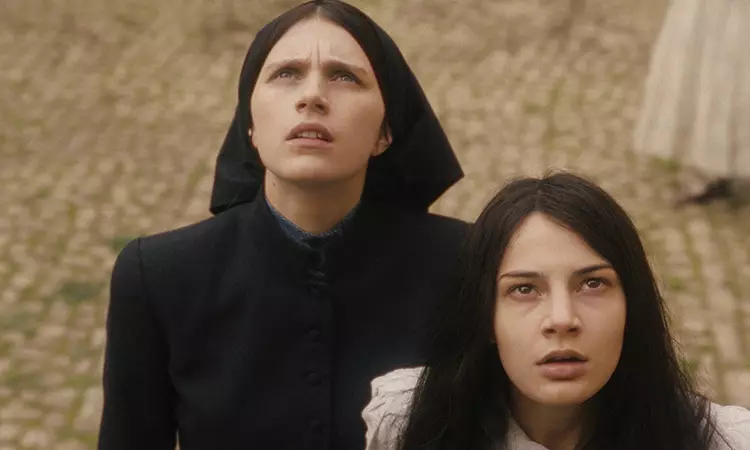Richard Donner’s original film, *The Omen* (1976), remains a cornerstone of the horror genre, establishing itself through its sophisticated narrative and chilling atmosphere. The latest film, *The First Omen*, strives to navigate the treacherous territory of prequels in the much-loved franchise. Opening with an unsettling ambience marked by ominous music and foreboding visuals, the film sets a tone that promises to resonate with fans of the original. However, does it manage to capture that same eerie essence, or does it merely tread familiar ground?
Taking place in Rome in 1971, the film follows Margaret, played by Nell Tiger Free, as she arrives at a convent with the intention of dedicating her life to faith. Unbeknownst to her, a malevolent force awaits her in the form of a troubled teenage girl at the convent’s orphanage. This character, labeled as “evil,” serves as the catalyst for Margaret’s journey into a dark and treacherous world. The script, credited to Arkasha Stevenson, carefully weaves connections to the original film while presenting a fresh storyline that explores the origins of the demonic figure, Damien.
The strength of *The First Omen* lies in its exploration of themes such as motherhood and the subtleties of female experience. Under Stevenson’s direction, the story is told through a woman’s eyes, presenting both the beauty and brutality of life, particularly through the lens of childbirth. This unique perspective imbues the horror elements with genuine emotion, making the narrative feel not only shocking but also deeply personal.
However, while the intention to maintain continuity with the original *Omen* is apparent, some elements may fall flat. The film includes characters, such as Father Brennan (played by Ralph Ineson), who connects the two timelines; yet, the execution doesn’t always come off as seamless. Ineson’s attempt at an Irish accent falters at times, which may distract discerning viewers from the gravity of the storyline. Despite this, his performance contributes to the film’s sense of ominous destiny; he embodies the foreboding atmosphere that permeates the narrative.
One notable aspect of *The First Omen* is its restrained approach to jump scares. Many contemporary horror films rely heavily on startling audiences as a primary mechanism for fear, yet Stevenson opts for a more measured approach that builds tension gradually. The film creates a landscape of dread rather than simply shocking audiences with sudden frights. This creates a more immersive experience, though it can also lead to instances where certain revelations may feel unnecessarily drawn out.
Yet, there are moments where the storytelling falls into the trap of over-explanation. In an unfortunate scene following a car accident, for example, the film displays injuries that viewers could have deduced without overt visual confirmation. This tendency diminishes the film’s ability to evoke a sense of unease through suggestion, opting instead for explicit depictions that can detract from the overall impact.
Despite minor flaws in pacing and exposition, Nell Tiger Free delivers a commendable performance that stands as the film’s anchor. She captures the intricate dimensions of her character, oscillating between innocence and the gradual realization of the horror surrounding her. As viewers accompany her on this harrowing journey, we feel her fear and curiosity intertwining, making her plight resonate deeply.
With the arrival of *The First Omen*, the franchise seems poised to explore new narratives within its established universe. While this film may tread the line between homage and innovation, it manages to evoke the sense of dread that made its predecessor remarkable. As the summer season brings forth a slew of sequels and reboots, audiences will find themselves watching this one with both apprehension and curiosity. In the end, while *The First Omen* may not completely recapture the magic of its original, it certainly lays the groundwork for a potential series that could prove fascinating for horror enthusiasts.


Leave a Reply